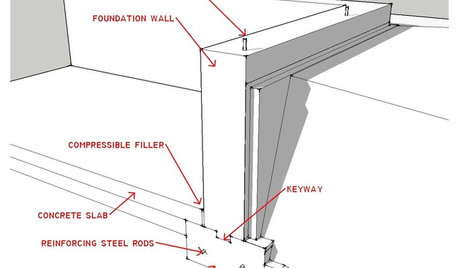Bud union planted 12" underground ended up OK
laura242424
9 years ago
Related Stories

PINK FLOWERSGreat Design Plant: Pink Trumpet Vine Heralds Vibrant Color
Announce your landscape beautification efforts with this flowering vine that perks up hot, dry gardens
Full Story
ARCHITECTUREKnow Your House: What Makes Up a Home's Foundation
Learn the components of a common foundation and their purpose to ensure a strong and stable house for years to come
Full Story
GARDENING FOR BUTTERFLIES3 Ways Native Plants Make Gardening So Much Better
You probably know about the lower maintenance. But native plants' other benefits go far beyond a little less watering and weeding
Full Story
GARDENING GUIDESMake Sure You Read This Before Buying New Plants
Follow these 10 plant-selection tips to avoid buyer’s remorse
Full Story
GARDENING GUIDES6 New Plant Varieties That Beat Out Their Parents
With better resistance and fewer demands, these garden beauties are worth a spot on your wish list
Full Story
GARDENING GUIDESGreat Design Plant: Knock Out Roses
As glorious as their high-maintenance kin for a fraction of the work, Knock Out roses make even beginners look like garden stars
Full Story
PLANTING IDEASGreat Garden Combo: 5 High-Intensity Plants for High-Intensity Sun
Blend bold foliage and flowers to create a powerful combination that will hold its own even in the harsh light of midsummer
Full Story
FUN HOUZZWhat Could You Imagine With Lego's New Architecture Kit?
Go ahead, toy around with wild building ideas. With 1,210 all-white blocks at your disposal, it's OK to think big
Full Story
GARDENING GUIDESHow to Design a Garden That Lasts
Climates are changing. Wildlife is evolving. Can your garden keep up?
Full Story
GARDENING GUIDESDecorate the Landscape With Versatile Agave
Beautiful, succulent leaves reach toward the sky, adding texture and beauty to the drought-tolerant landscape
Full StoryMore Discussions










jacqueline9CA
seil zone 6b MI
Related Professionals
West Milford Landscape Architects & Landscape Designers · Windham Landscape Architects & Landscape Designers · Arnold Landscape Architects & Landscape Designers · East Rancho Dominguez Landscape Architects & Landscape Designers · Fillmore Landscape Architects & Landscape Designers · Clermont Landscape Contractors · Salem Landscape Contractors · Tempe Landscape Contractors · Arlington Landscape Contractors · Fort Payne Landscape Contractors · Mastic Beach Landscape Contractors · Middletown Landscape Contractors · Mission Viejo Landscape Contractors · Quincy Landscape Contractors · Secaucus Landscape Contractorslaura242424Original Author
dublinbay z6 (KS)
jacqueline9CA
laura242424Original Author
laura242424Original Author
boncrow66